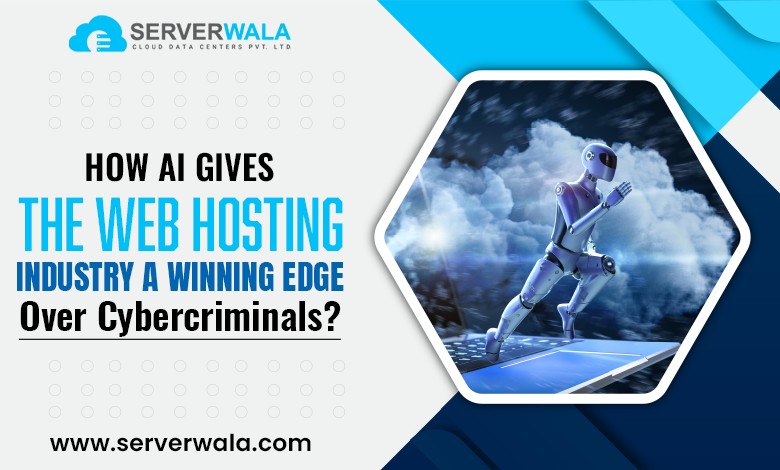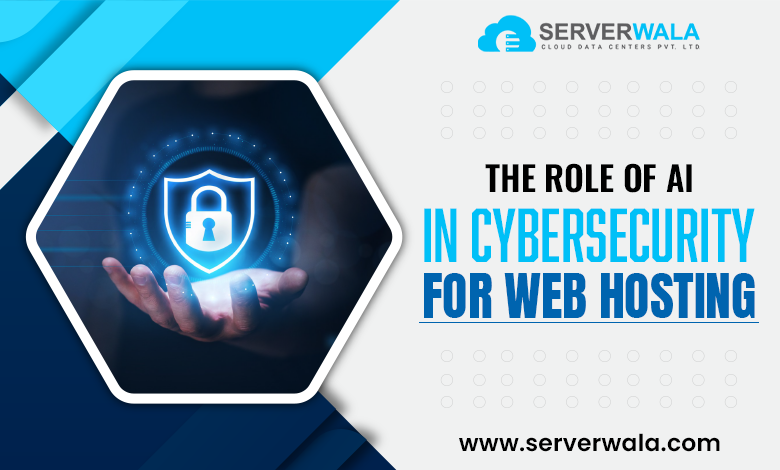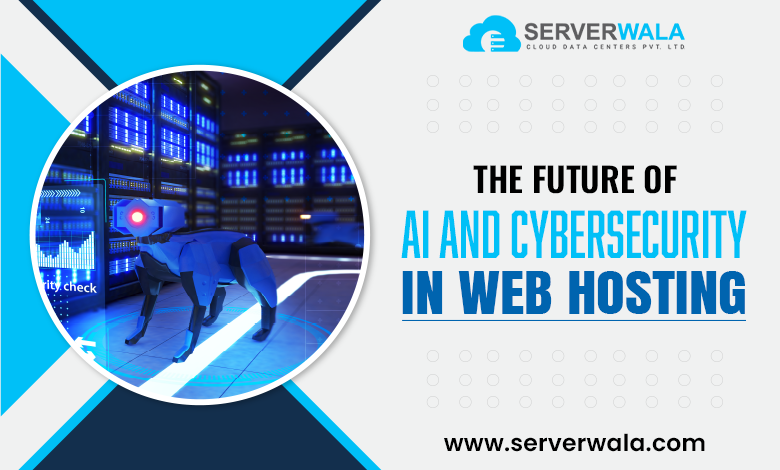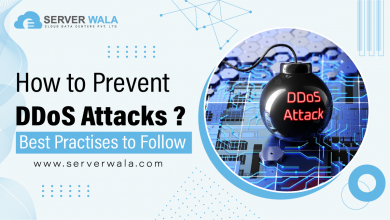How AI Gives The Web Hosting Industry A Winning Edge Over Cybercriminals?

Overview of increasing cyberattacks on web hosting companies
Cybersecurity threats have become a major concern for web hosting companies in today’s digital era. This blog explores the escalating risks posed by cybercriminals, the transformative role of artificial intelligence (AI) in countering these threats, and the future of AI-powered cybersecurity solutions for the web hosting industry.
Key Topics Covered in This Blog:
- The Rise of Cyberattacks: Why web hosting companies are primary targets.
- AI’s Contribution: How AI is revolutionizing cybersecurity for hosting providers.
- AI-Driven Security Solutions: Specific technologies and their applications in combating cybercrime.
- Future Trends: Predictions for AI’s evolving role in web hosting security.
Web hosting companies store sensitive information, manage website operations, and support online commerce. This makes them attractive targets for attackers aiming to disrupt services, steal data, or extract financial gains. The blog highlights how these challenges are growing in scale and sophistication, underlining the need for innovative solutions.
Key Threats to Web Hosting Providers:
- DDoS Attacks: Flooding servers with fake traffic to cause outages.
- Ransomware: Encrypting crucial data and demanding payment for its release.
- Phishing and Credential Theft: Exploiting email and website vulnerabilities to steal sensitive information.
- Malware and Exploits: Injecting malicious code into websites or applications to compromise users and systems.
Impacts of These Attacks:
- Operational disruptions that lead to downtime and financial losses.
- Compromised client data and tarnished reputations.
- Long-term erosion of customer trust in hosting providers.
Why AI Is the Key:
The blog delves into how AI offers a robust response to these growing cyber threats. AI-driven tools provide real-time monitoring, predictive analytics, and automated defenses. By adopting AI solutions, web hosting companies can not only enhance their security but also maintain client trust and ensure smooth operations.
The Role of AI in Cybersecurity for Web Hosting

AI plays a transformative role in securing web hosting platforms. Its ability to analyze vast datasets and identify threats in real-time has revolutionized cybersecurity practices.
Key Functions of AI in Web Hosting Security:
- Continuous Monitoring: AI constantly monitors network traffic and user behavior, flagging unusual patterns.
- Threat Prediction: Machine learning models analyze past data to predict and prepare for potential threats.
- Rapid Response: Automated systems detect and neutralize threats faster than human operators.
- Reduced False Positives: AI improves the accuracy of threat detection by minimizing false alarms, enabling focused responses.
Advantages of AI in Cybersecurity:
- Proactive Defense: AI preempts attacks by recognizing suspicious behavior early.
- Scalability: AI systems adapt to the growing scale of hosting environments.
- Automation: AI reduces the need for manual intervention, saving time and resources.
Real-World Applications:
- AI-driven tools block phishing attempts by analyzing email content for malicious intent.
- Intrusion detection systems powered by AI monitor access attempts, identifying and blocking unauthorized entries.
- AI filters malicious traffic during DDoS attacks, ensuring service continuity.
AI-Driven Security Solutions for Web Hosting Providers
AI-powered solutions are redefining how web hosting providers tackle cyber threats, enabling proactive defense and enhanced reliability. These technologies use machine learning, natural language processing (NLP), and big data analytics to secure platforms against a growing spectrum of attacks.
Detecting Phishing and Fraudulent Activities
AI tools analyze email content, URLs, and web traffic in real time to detect phishing attempts. They can quickly identify subtle changes in language or design patterns that traditional systems may overlook. For instance, phishing attacks, which accounted for nearly 36% of global cyberattacks in 2023, are mitigated effectively by AI tools that predict and neutralize risks before they escalate. NLP enhances this capability, flagging potential threats even in highly sophisticated attempts.
Intrusion Detection and Prevention
AI-driven intrusion detection systems (IDS) continuously monitor network traffic for anomalies. By learning from historical attack patterns, these systems identify and neutralize unusual access attempts before sensitive data is compromised. This reduces the risk of breaches and significantly cuts down false positives, ensuring that hosting providers focus only on genuine alerts.
Combating DDoS Attacks
Distributed Denial of Service (DDoS) attacks, which surged by 30% in 2023, often lead to costly downtimes. AI combats these attacks by filtering out malicious traffic while maintaining server performance for legitimate users. Machine learning algorithms adapt to evolving attack patterns, ensuring uninterrupted services even during sophisticated, large-scale DDoS attempts.
Automated Vulnerability Assessments
AI scans platforms regularly to identify security weaknesses in servers, applications, and plugins. Automated vulnerability assessments ensure that systems remain updated, minimizing exposure to exploits. These assessments not only speed up the process but also enhance accuracy, as AI can cross-reference vulnerabilities with global threat intelligence databases.
Real-Time Threat Mitigation
AI systems respond to active threats in real time, neutralizing malware, ransomware, and other attacks without requiring human intervention. This quick response time significantly reduces the impact of breaches, ensuring seamless operations for web hosting providers.
Enhanced Access Control
AI strengthens user authentication systems through multi-factor authentication (MFA) and biometric verification. Behavioral biometrics, like tracking navigation habits and typing patterns, add another layer of security, reducing the success rate of unauthorized login attempts by up to 70%.
Predictive Analytics for Risk Management
AI leverages historical data to predict emerging threats. By recognizing trends and patterns, hosting providers can implement security measures ahead of time, preventing potential breaches. For example, AI can detect an uptick in specific attack methods globally and adjust defenses preemptively for enhanced security.
The Future of AI and Cybersecurity in Web Hosting

AI’s future in cybersecurity is poised for transformative advancements, particularly in the web hosting industry. As cyber threats grow more sophisticated, AI will play a critical role in developing proactive, intelligent, and adaptive defense mechanisms.
1. Advanced Predictive Analytics
AI’s ability to analyze vast datasets will continue to evolve, making threat prediction more accurate. Predictive analytics will allow hosting providers to identify patterns and vulnerabilities before attackers exploit them. For instance, by studying millions of data points globally, AI can flag trends like the rise of specific malware variants. This capability helps providers proactively reinforce defenses, reducing the success rate of new attack methods.
2. Integration with Blockchain Technology
AI and blockchain will merge to create multi-layered security solutions. Blockchain’s decentralized nature ensures that data transactions and authentication processes remain tamper-proof. Combined with AI, this integration can strengthen encryption techniques, reduce fraud, and improve transparency. Hosting providers could implement blockchain-based identity verification, adding extra layers of trust for users and reducing credential-related breaches.
3. Real-Time Zero-Day Vulnerability Management
Zero-day vulnerabilities, exploited by attackers before they are patched, remain one of the most significant risks for web hosting providers. AI is expected to excel in this area by rapidly identifying and neutralizing these vulnerabilities. Machine learning algorithms will continue analyzing application behaviors to detect anomalies linked to zero-day exploits, enabling faster responses than traditional methods.
4. Enhanced Collaboration Between AI and Human Expertise
While AI systems are becoming more capable, human expertise will remain integral to cybersecurity. The future will see deeper collaboration between AI and security professionals. AI will handle repetitive, data-heavy tasks like anomaly detection, while experts will focus on strategic decision-making and advanced threat analysis. This partnership ensures a comprehensive approach to cyber defense.
5. Development of Autonomous Security Systems
AI will drive the creation of fully autonomous cybersecurity systems capable of managing incidents end-to-end. These systems will detect, mitigate, and recover from attacks without human intervention. For example, during a ransomware attack, AI could isolate affected systems, restore backups, and neutralize the threat, all in real time.
6. Improved AI-Driven Threat Intelligence
AI tools will grow more sophisticated in gathering and analyzing global threat intelligence. By monitoring threat landscapes across industries, AI systems will help web hosting providers adapt their security measures dynamically. This ensures robust defenses against the latest attack trends and techniques, improving overall resilience.
7. Focus on Ethical AI in Cybersecurity
As AI becomes more prevalent, ethical considerations will play a crucial role in its deployment. Hosting providers will need to ensure that AI systems are transparent, unbiased, and designed to protect privacy. Regulatory frameworks are expected to evolve alongside AI technology, establishing guidelines for responsible use.
Also Read: What are Predictions of Artificial Intelligence (AI) in Cybersecurity?
Conclusion
AI has revolutionized cybersecurity in the web hosting industry, offering unmatched protection against the escalating threats of cybercriminals. By integrating predictive analytics, automation, and real-time monitoring, AI empowers hosting providers to detect, prevent, and respond to threats more effectively. Its ability to analyze large datasets and identify patterns allows for proactive defense, reducing the likelihood of successful breaches.
The continual evolution of AI tools ensures that security measures remain one step ahead of attackers. With advancements in machine learning and autonomous systems, web hosting environments will grow even more resilient. AI-driven systems not only protect sensitive data but also minimize downtime, safeguard business operations, and reinforce client trust.
In today’s digital-first world, adopting AI for cybersecurity is no longer an option but a necessity. Web hosting companies that embrace AI-driven solutions position themselves as leaders in offering secure, reliable, and future-proof services. This commitment not only protects their operations but also fortifies the trust and confidence of their clients. As the landscape evolves, AI will remain the cornerstone of robust cybersecurity strategies, shaping a safer and more secure web hosting future.





